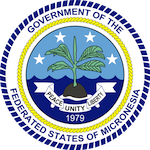U.S. Sen. Lisa Murkowski, R-Alaska, today chaired a hearing to examine U.S. interests in the Freely Associated States (FAS), which include the Republic of the Marshall Islands, the Federated States of Micronesia, and the Republic of Palau. Relations between the U.S. and FAS began during World War II, when the United States ended Japanese occupation of the region.
Murkowski opened the hearing by outlining the important relationship the United States has with these nations.
“The FAS nations are truly our friends and allies. Their citizens are part of our Armed Forces. They vote with the United States on important votes in the United Nations more often than any other nation except perhaps Israel. And they live and work in each of our 50 states, making a positive contribution to our nation,” Murkowski said.
Murkowski also spoke to the status of the U.S.-FAS Compacts of Free Association.
“Our primary interest today is U.S. financial assistance, which is set to expire in the Marshall Islands and Federated States of Micronesia at the end of fiscal year 2023, and then in Palau at the end of fiscal year 2024; how that might impact the United States’ interests in the region; and whether it would create a leadership void that other nations might seek to fill,” Murkowski said.
The hearing focused on what a post-financial assistance world could look like, and increasing tension with China in the region.
“It’s fair to say that if the United States isn’t there with the financial assistance that they would hope for, they’re going to potentially be looking elsewhere,” Murkowski said. “Whether it is Taiwan – fair enough – China, gets us a little more on edge here. But, they will look to others for a level of international assistance and support.”
The Department of the Interior’s Assistant Secretary for Insular and International Affairs, Doug Domenech, was one of four witnesses who testified.
“Fulfilling all three Compacts of Free Association agreements is critical to sustaining the U.S. government’s commitment to these nations and their respective efforts to advance their own economic self-sufficiency,” Domenech said. “The U.S. can be proud of the historic relationships and the legacy it has with these three Pacific Island nations. Maintaining the close relationships we have developed through all three Compacts will continue to be an important part of the overall U.S. policy of a free and open Indo-Pacific. An expiration of federal financial assistance in just four years could carry dire consequences for the well-being for the people of three of the United States’ closest partners.”
Assistant Secretary of Defense for Indo-Pacific Security Affairs, Randall Schriver, provided the Department of Defense’s (DoD) perspective.
“We are particularly concerned by China’s use of coercive tools to attempt to erode their sovereignty,” Schriver said. “DoD, along with the interagency, strongly supports extending Compact financial assistance to secure long-term U.S. strategic interests in this vital region [and are] engaged in evaluating options for our post-2023 and post 2024 relationship.”
Deputy Assistant Secretary for Australia, New Zealand, and Pacific Islands, Sandra Oudkirk, provided the State Department’s perspective.
“We have an opportunity here with our relationships with the Freely Associated States, really to be [as] I said in my testimony, a bellwether for the rest of the Pacific. How we handle this relationship is absolutely crucial to how we are perceived across the Pacific. And the threat from China, the tantalizing option of sort of sweetheart deals, concessionary lending, is not just present in the Freely Associated States, but it is even more present in other Pacific island countries,” Oudkirk said. “If I could underscore anything at all, is just how important these three countries are as a model and a signal for a whole host of other relationships.”
Murkowski is chairman of the Committee on Energy and Natural Resources. An archived video of today’s hearing can be found on the committee’s website. Click here, here and here to view Murkowski’s questions for the witnesses.
To go to the full piece at U.S. Senate Committee on Energy and Natural Resources, click here.




